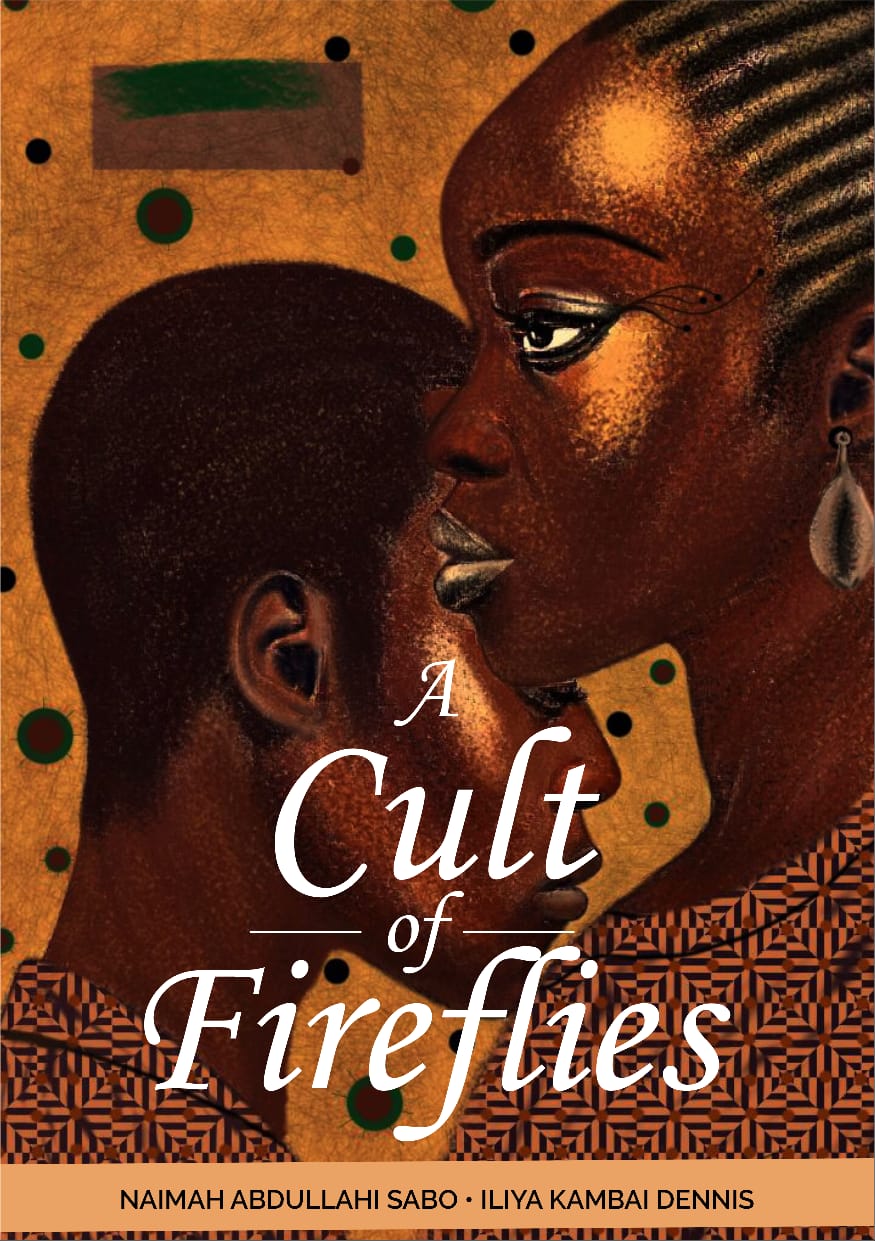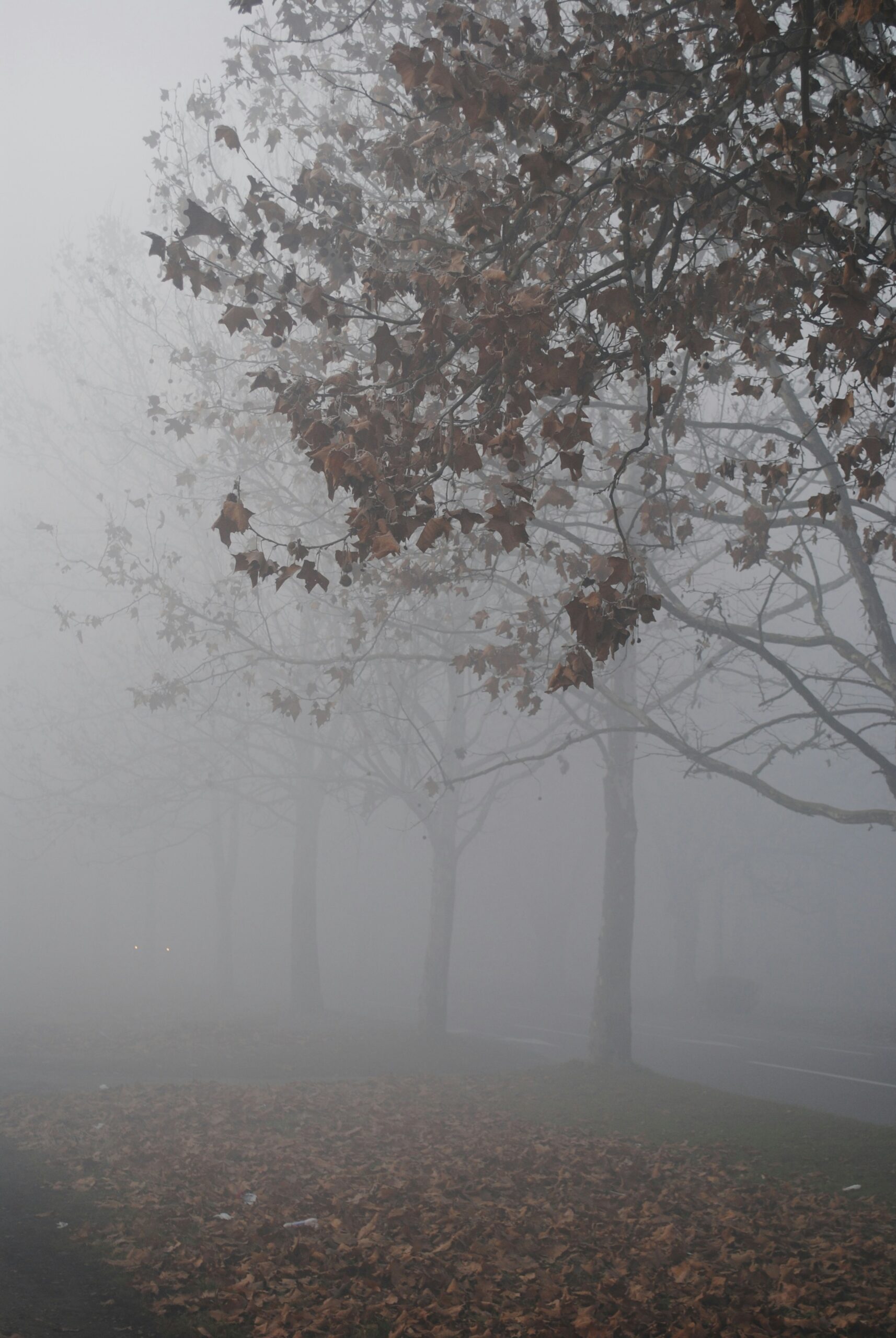…Although a chapbook of very short poems (which seems like the poets’ attempt to test the water of critical reception), part of the aesthetic appeal of the collection is the poets’ use of language…
In his critical review of Michael Chiedoziem’s chapbook Painter of Love, Kamolideen Oluwapelumi lamented what he tagged “the decline of love poems”, and the perpetuation of “trite” language in the few available contemporary collections of love poems. According to him, “in 18 poems singing love and its attendant emotions to a number of lovers in fatefully accessible language, Chukwudera provides us with a rather convincing evidence that all we can get from love poetry today is not only facile imagination, but also a travesty in its poetic execution”. However, A Cult of Fireflies by Naimah Abdullahi and Iliya Kambai is a proof against the “perceived” decline of, and perpetuation of “trite” tropes in contemporary love poems. Among others, Abdullahi and Kambai’s collection is a testament that people still fall in love and express same in poetry. The collection exemplifies the possibility of readers falling in love again with language in contemporary love poems, if indeed they (the readers) ever fell out of it.
Although a chapbook of very short poems (which seems like the poets’ attempt to test the water of critical reception), part of the aesthetic appeal of the collection is the poets’ use of language. In ACFs, one sees the gradual permeation of what Okoiwo Ochio calls “aesthetic split”, in this case, in contemporary love poetry. For instance, dislodged from Oluwapelumi’s lamentation of a redundant use of words in Chiedoziem’s Painter of Love, most of the poems in ACFs are written in a style reinforced by a sustained minimalist approach. Apart from the poem “Forever”, all the other (19) poems in the collection do not have up to twenty lines, yet say much even with a few words. One hallmark of this minimalist approach is that it enhances fluidity of thoughts from the titles into the body of the poems. Reading the poems in the collection, one finds that each title does not summarise the poem, rather serves as part of the lines in the content, which a reader could only ignore at the peril of lack of understanding of the subject matter. For instance, in the poem “The way home”, the poets write: “is the dark of your pupil/as it tosses my heart to flips and flaps”. The title flows into the body of the poem, and vice versa. Hence, the poem could only be read and fully understood from the title.
This fluid pattern is carried on to the poem “I look forward”, a poem which particularises the aesthetic nuance of ACFs. Divided into three stanzas of tercet each, the poem’s stylistic insignia is both couched in the use of anaphora and metered phrasing. It is important to quote the title again before the first stanza for easy understanding: “I look forward”:
to your wrinkled skin,
to your toothless grin,
punctuated by a slouched chin.
Here, a few words are used to measure the definite length of human time —when the skin will finally become wrinkled. The power, not of the metaphysical assertiveness, of the lines above is in the use of “toothless grin” and “slouched chin”, placed in sequential alternation. The imagery of an old woman grinning comes to mind, reflective of the susceptibility of man to time, and the perseverance of love as such. Even so, the lyrical voice is not lost: the personae looks forward to, hence, will always love his/her lover till old age comes. This idea is well expressed in the last stanza, where the poets write:
our cheeks sagged by warm smiles,
rubbing lips together at eighty;
the blossom of our love like we are eighteen.
Even in the last stanza above, the title (if recalled) still serves as a caesura and the meaning (future anticipation) becomes more cogent. Only love has the potency to make eighty seem like eighteen. But this is only be possible when “you find” someone who is the “chill of your pillow on hot days”, someone who is “your blanket on cold nights”, someone who, “when you run out of energy”, “will be your glucose” (“I will find you”).
While it is as much a fact that the aesthetic shift in contemporary poetry is not as pronounced in love poems as it is in the mainstream poems, it’s worthy of note that ACFs is a collection of peculiar magnificence. This can be seen in the structure of the poems which is devoid of the nascent avant-garde pattern by contemporary poets, of scattering poems all over the page, or using slashes (//) to indicate line breaks, or the paragraphic patterning, which not only weakens the peculiar visual appeal of poetry, but also distorts rhythm. ACFs is written with simple style and structure that can appeal to the taste of any class of readers.
However, the beauty of this collection (as well as every collection of poems) can only be fully ascertained through conscious critical engagement with the content. Contemporary chapbooks suffer dearth of critical engagement not because they are written in poor language and style (at least not all of them), but because digital chapbooks are easily undervalued. Of course, there’s the traditional preference for hardcopy books instead of digital copies. There’s also the issue of lack of critical focus on love-themed poems. These days, whenever contemporary poetry is discussed, there’s often a lacuna in the area of love poems. Apart from a handful, there aren’t poets noted for exploring the vast terrain of love poems. It, then, seems fair for Oluwapelumi to lament the decline of love poems in contemporary poetry production.
What I consider more tragic, however, is the culture of critical inattentiveness and reluctance towards the available love-themed chapbooks. For instance, contemporary critics appear lackadaisical towards digital love chapbooks of poems, especially those by younger poets. Most chapbooks of love poems are visible only within a day or week of their publication, after which no one talks about them anymore. They hardly receive any reviews. While the aforementioned contribute to the perceived “decline” of love poems, it is more important that young poets continue to explore the subject with postmodern nuance just like Abdullahi and Kambai did in ACFs; theirs is a tour guide on how to make style and discourse coalesce in love poetry.

Nket Godwin is a poet, critic, essayist, book reviewer. He writes and teaches in Port Harcourt.













Leave a Reply